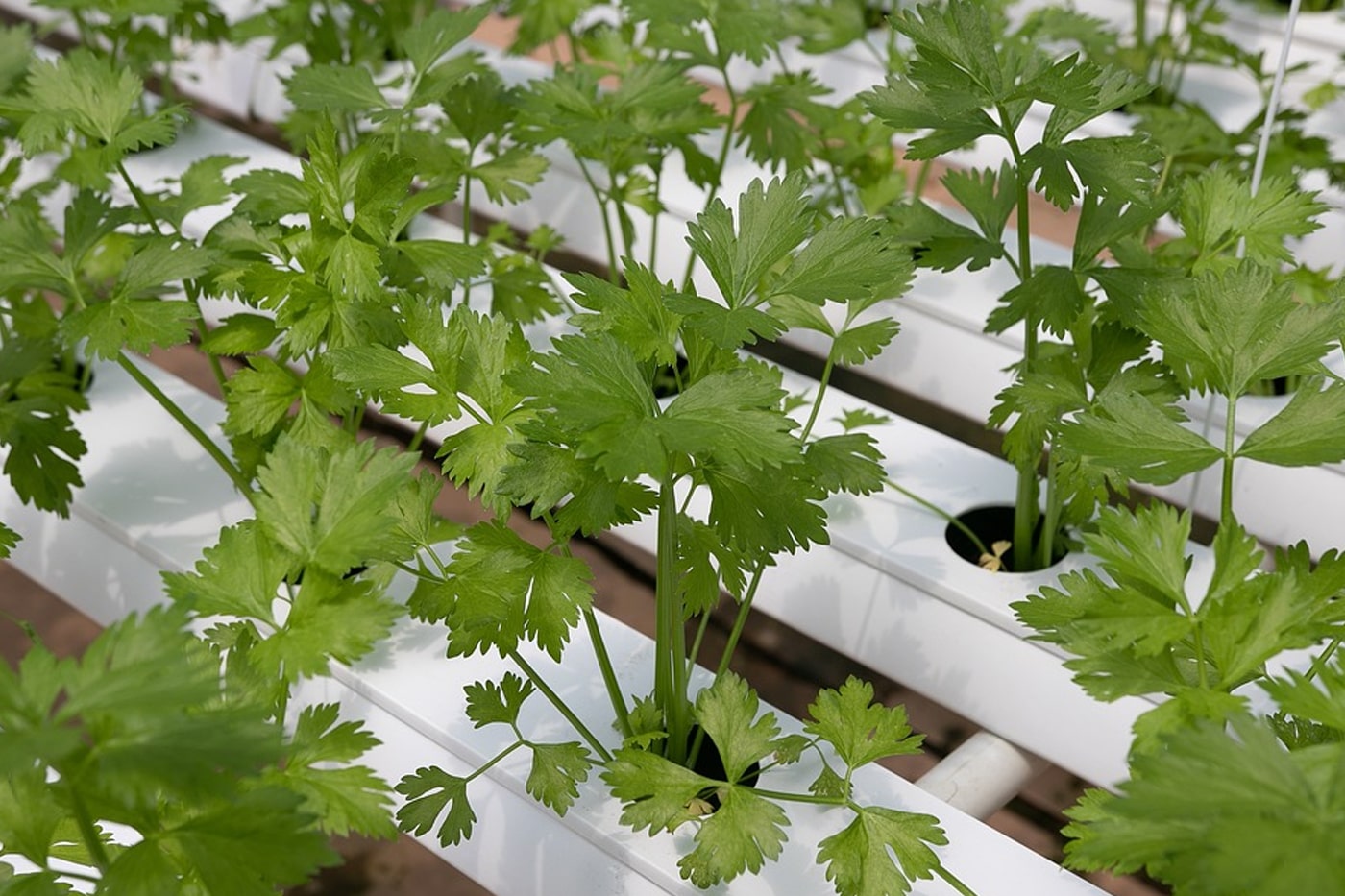Hydroponic garden enables growers to produce various crops all year round without soil. This gardening method promotes faster growth and higher yields than the traditional in-ground growing system. It also uses less water compared to conventional soil-based gardens. That said, hydroponics depends on an efficient system to grow plants.
Contents []
There are six different types of hydroponics systems. These are:
Wick System: Nylon wicks are set up around the plants to deliver nutrients. This system does not use electricity, pumps, or aerators.
Water Culture: The roots of the plants are submerged directly into a nutrient solution. Just like the Wick system, the water culture system does not require pumps and aerators to set up.
Ebb and Flow: AKA flood and drain, ebb and flow has a timer that switches the pump off at a scheduled time. When the timer goes off and the pump is switched off, the water is drained from the grow beds and flows back into the pump.
Drip: This system sends the solution into the plant base by being pumped into a tube. The tube has a drip emitter at the end that controls how much solution is released to every plant. The flow of solution can be customized for every plant.
N.F.T. (Nutrient Film Technology): The solution is stored in a reservoir and pumped into sloped channels and the roots of every plant. The excess solution goes back into the reservoir.
Aeroponic systems: One of the more complex hydroponic setups, the plants are suspended in the air, and the solution is misted below the plants. The misting components are connected to the water pump.
Read: The Future of Gardening: Hydroponics Revolutionizing Agriculture
Because water is primarily used as a growing medium in hydroponic gardens, different fertilizers support plant growth. One of the most popular fertilizers for hydroponic gardens is seaweed extract.
What is Seaweed Extract?

Seaweed extract is a fertilizer derived from marine plants like the brown alga species of Ascophyllum, Ecklonia (kelp), and Fucus varieties. The plants are processed to remove saltwater and then fermented into a slurry. The liquid is collected from the slurry to be used as a liquid fertilizer. The solids from the slurry are processed into a flake form for longer shelf life.
Seaweed extract can be used in traditional soil-based gardening and hydroponic gardens. The extract contains high concentrations of vitamins, minerals, organic acids, and hormones that promote healthy plant growth and higher yields. These nutrients include nitrogen, potassium, phosphate, magnesium, iron, zinc, copper, manganese, and over 60 micro and micronutrients that strengthen plant cell walls and deeper roots. It also minimizes seed dormancy and boosts nutrient uptake in plants.
Because seaweed extract is made from natural ingredients, it is popular in organic farming and commercial agriculture. It is effective, affordable, and safe to use.
Read: What You Need To Know About Organic Gardening
How to Use Seaweed Extract in Hydroponic Gardens

Regardless if you're using seaweed extract in liquid or powder/flake form, you'll be surprised how flexible this product is as far as application goes. Here are the best ways to use seaweed extract in hydroponic gardens:
Spray it on plant leaves: Seaweed extract is diluted in water, and the solution can be sprayed directly on plant leaves. You can also pour the solution directly into the soil. As a foliar spray, seaweed extract protects plants from diseases and pests because it contains natural antibiotics. On top of that, foliar feeding enriches the soil with essential nutrients and hormones that plants cannot absorb through their roots.
Use as a root dip: Liquid fertilizers like seaweed extract are easy to use in a hydroponic garden. Check the manufacturer's instructions to determine the correct dose of seaweed extract to add to a solution. Use the solution as a root dip. Seaweed extract adds more nutrients to your garden, ensuring healthy plant growth and a higher yield. Although a hydroponic garden is in a controlled environment, it's still possible to contaminate the area with pests and diseases. Seaweed also contains nutrients that protect from cell damage. This makes plants more resistant to pests and diseases.
Combined with other additives: Seaweed extract is quite versatile. You can use it on its own or mixed with other additives, specifically fulvic acid and humic acid. Fulvic acid brings nutrients back into the soil. This compound can convert nutrients so the plants easily absorb them. Humic acids are organic molecules that make nutrients in root dips easier to absorb by plants. Using seaweed extract with humic or fulvic acids will accelerate plant growth and boost plant metabolism.
Read: 4 Common Problems with Hydroponics and How To Fix Them
Benefits of Seaweed Extract in Hydroponic Garden

- Use seaweed extract in your flower garden. It can help plants develop more buds. Also, seaweed extract can extend the life of cut flowers if sprayed a day or two before cutting.
- Extend the shelf life of vegetables and fruits by adding seaweed extract into your hydroponic system ten days before harvest.
- Seaweed extract can increase nutrient uptake in pasture crops
- Protect plants from frost and high temps by using seaweed extract. It can boost plants' resistance against extreme weather changes
- Because seaweed extract supports microbial activity, it's an excellent fertilizer for organic and sustainable farming
- Seaweed extract acts as a soil conditioner. It can alter the consistency and texture of certain soils to support plant growth. It can make compact, dense soils looser and sandy soils firmer and more compact to improve water retention
As you can see, seaweed extract benefits all gardens, including hydroponic gardens. With seaweed extract, it's possible to accelerate plant growth, strengthen resistance to diseases, and enjoy higher yields every harvest season.
Be sure to use high-quality seaweed extract for sustainable, organic farming. Our online store has natural fertilizers and soil conditioners like powdered humic acid and organic flake seaweed extract. Shop now and enjoy amazing deals on 100% natural and organic soil fertilizers.


